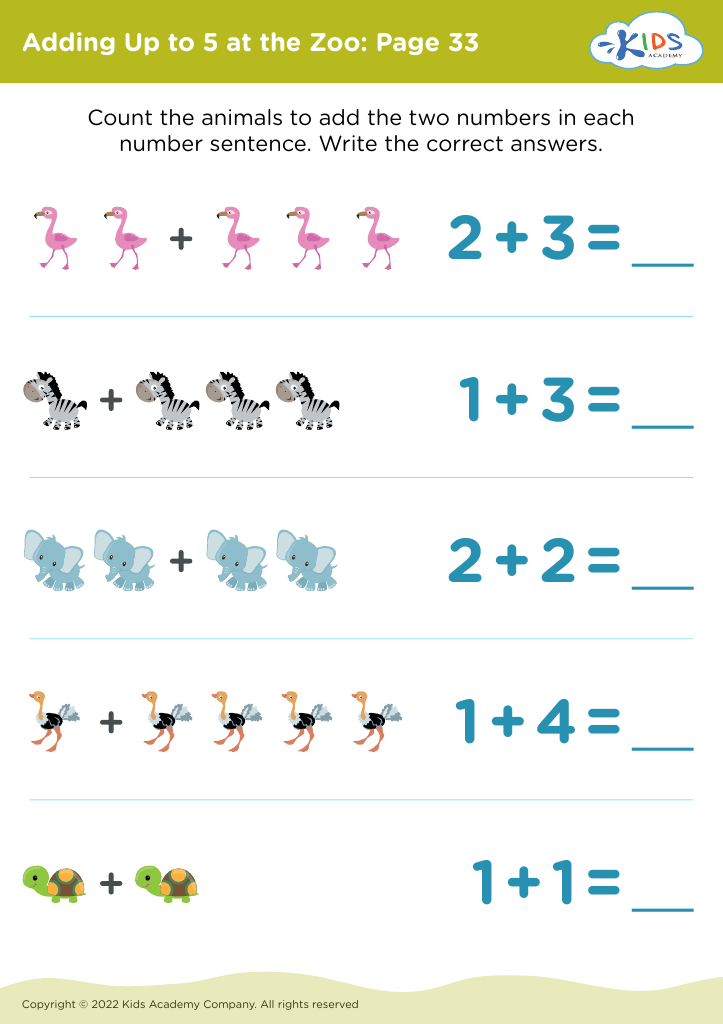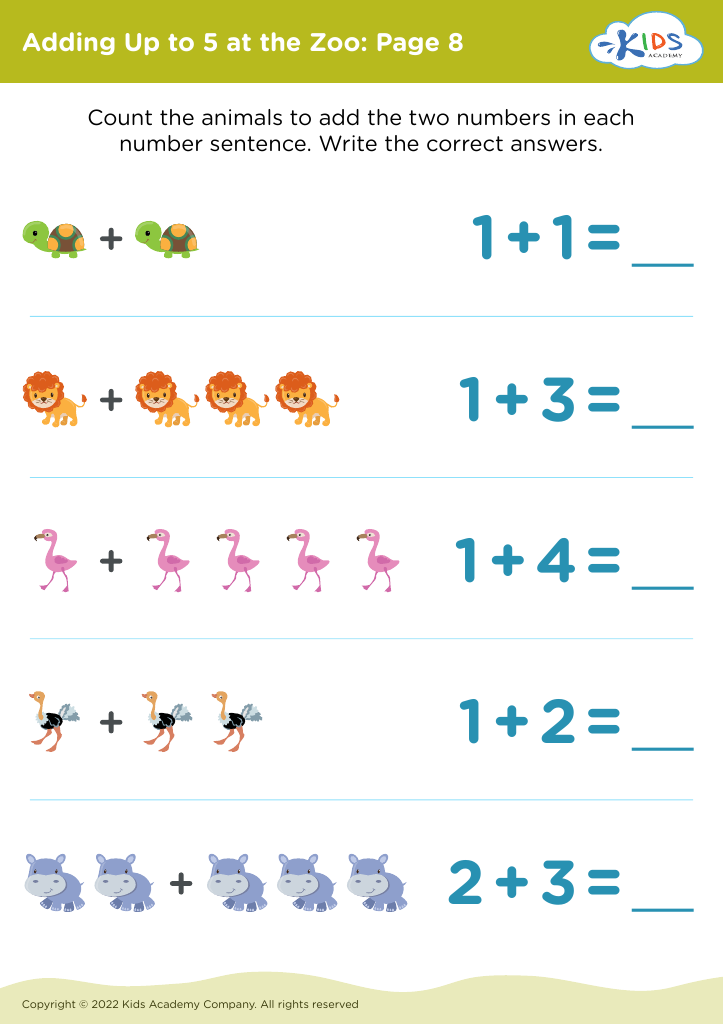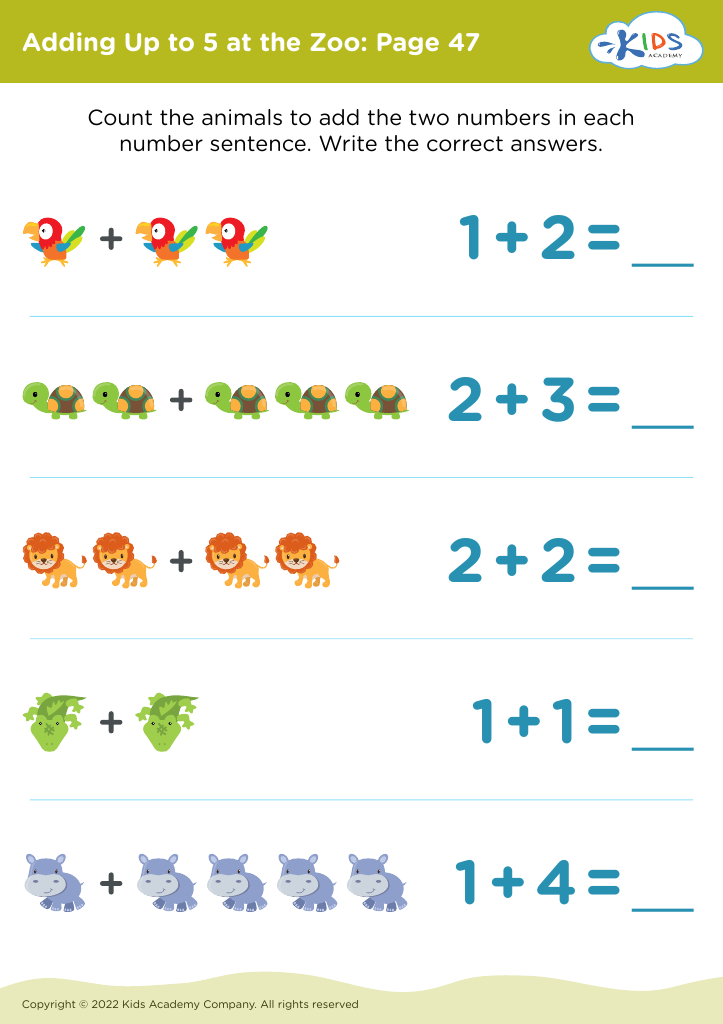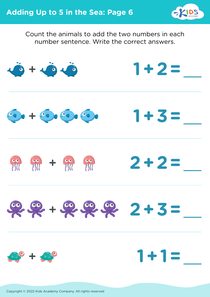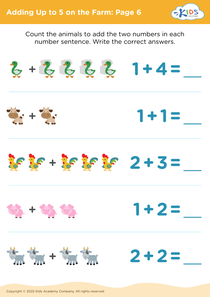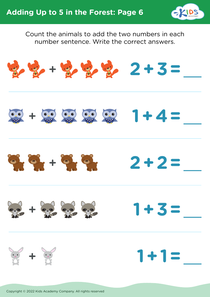Fine motor skills (writing numbers) Adding at the Zoo Worksheets for Ages 5-7
3 filtered results
-
From - To
Enhance your child's fine motor skills with our engaging "Adding at the Zoo" worksheets, designed specifically for children ages 5-7. These printable activities allow young learners to practice writing numbers while exploring a fun zoo theme. As kids trace, write, and visualize numbers, they'll develop essential hand-eye coordination needed for writing. Featuring colorful graphics of animals, the worksheets seamlessly blend learning with play, making math enjoyable. Perfect for home or classroom use, our worksheets encourage fine motor development while reinforcing basic addition concepts. Download today to give your child the tools they need for early success in math and handwriting!
Fine motor skills are crucial for children aged 5-7 as they lay the foundation for important tasks, including writing, drawing, and self-care. Activities like "Adding at the Zoo" not only engage students but also promote the development of these essential skills. As children practice writing numbers while adding different animals at the zoo, they refine their hand-eye coordination and dexterity.
Parents and teachers should care about fine motor skills because they directly impact a child's academic performance and confidence. Mastery of fine motor tasks becomes increasingly important as children progress through school. When students struggle with writing or other fine motor activities, it can lead to frustration and a lack of motivation. Game-based learning activities make practice fun, encouraging a positive attitude towards learning.
Additionally, as children engage in tasks like "Adding at the Zoo," they simultaneously develop mathematical skills. This integration of fine motor development and numeracy solidifies their understanding in both areas. Supporting the growth of fine motor skills helps prepare children not just for immediate learning tasks but for lifelong skills necessary for various daily activities and future educational pursuits. Ultimately, cultivating these skills helps children gain independence, fostering both personal and academic growth.
